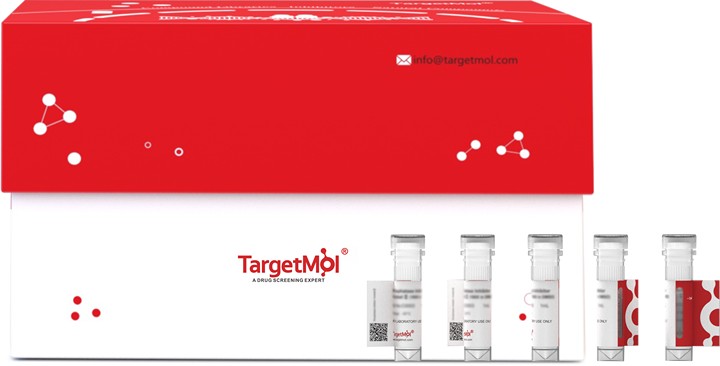Shopping Cart
- Remove All
 Your shopping cart is currently empty
Your shopping cart is currently empty

CD19 Protein, Human, Recombinant (His), APC-Labeled is expressed in HEK293 Stable Cells. The accession number is P15391-1.

| Pack Size | Price | Availability | Quantity |
|---|---|---|---|
| 25 tests | $462 | Backorder | |
| 100 tests | $1,550 | Backorder |
| Biological Activity | 1. Flow cytometric analysis of anti-CD19 CAR expression. 293 cells were lentivirally transduced with anti-CD19 CAR. Flow cytometric analysis was performed with a negative control protein and CD19 Protein, Human, Recombinant (His), APC-Labeled (Cat#TMPY-07081), respectively. Non-transduced 293 cells were used as a control (left). 2. Binding activity of APC-conjugated CD19 protein to PBMC cells. PBMC cells were stained with anti-CD3 antibody and CD19 Protein, Human, Recombinant (His), APC-Labeled (Cat#TMPY-07081) and detected by flow cytometry. PBMC cells stained with anti-CD3 antibody were used as a control (left). |
| Description | CD19 Protein, Human, Recombinant (His), APC-Labeled is expressed in HEK293 Stable Cells. The accession number is P15391-1. |
| Species | Human |
| Expression System | HEK293 Cells |
| Tag | C-His |
| Accession Number | P15391-1 |
| Synonyms | CVID3,B4 |
| Construction | A DNA sequence encoding the extracellular domain (Met1-Lys291) of human CD19 (P15391-1) was expressed with a C-terminal polyhistidine tag. The protein is site-specifically conjugated with APC (Excitation Max.= 651 nm, Emission Max.= 662 nm). |
| Molecular Weight | 31.6 kDa (predicted) |
| Endotoxin | < 1.0 EU per μg protein as determined by the LAL method. |
| Formulation | This product is Lyophilized from sterile PBS, pH 7.4, with 5 %-8 % trehalose and 0.2% BSA. Please contact us for any concerns or special requirements. Please refer to the specific buffer information in the hardcopy of datasheet or the lot-specific COA. |
| Reconstitution | Please refer to the lot-specific COA. |
| Shipping | In general, Lyophilized powders are shipping with blue ice. |
| Research Background | The cluster of differentiation (CD) system is commonly used as cell markers in Immunophenotyping. Different kinds of cells in the immune system can be identified through the surface CD molecules associating with the immune function of the cell. There are more than 320 CD unique clusters and subclusters have been identified. Some of the CD molecules serve as receptors or ligands important to the cell through initiating a signal cascade which then alter the behavior of the cell. Some CD proteins do not take part in cell signal process but have other functions such as cell adhesion. Cluster of differentiation 19 (CD19) is a member of CD system. CD19 is a cell surface molecule that assembles with the antigen receptor of B-cells. This results in a descent in the threshold for antigen receptor-dependent stimulation. A simplified view holds that the ability of B-cells to respond to the various antigens in a specific and sensitive manner is achieved in the presence of low-affinity antigen receptors. CD19 primarily acts as a B-cell co-receptor in conjunction with CD21 and CD81. The formation of the receptor complex is induced by antigen and CD19, induced by exogenous antigen, has been found cytoplasmic tail phosphorylated and bind to sIg.Cancer ImmunotherapyImmune CheckpointImmunotherapyTargeted Therapy |

Copyright © 2015-2025 TargetMol Chemicals Inc. All Rights Reserved.